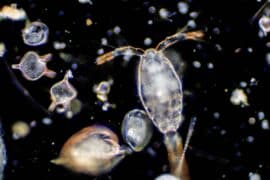
Broccoli sprouts have more nutritional value than mature broccoli
“Eat your greens, they’re good for you,” is age-old advice that has been passed down through generations. While this general wisdom has often been met with a certain level of youthful skepticism, recent scientific findings are providing compelling evidence to back up these parental mandates. This is especially true when it comes to broccoli, and now, for broccoli sprouts as well.
Research emerging from Osaka Metropolitan University is underscoring the profound health benefits linked to the consumption of cruciferous vegetables, specifically broccoli sprouts, and their role in disease prevention.
Beyond the common nutrients
Among the array of vegetables, cruciferous types like broccoli have garnered attention for their association with reduced risks of several diseases, including diabetes and cancer. These positive effects are attributed to the presence of organosulfur compounds. These include glucosinolates and isothiocyanates, which are known for their antioxidant activities.
However, the research team led by Assistant Professor Shingo Kasamatsu and Professor Hideshi Ihara delved deeper. Their investigation focused on an often overlooked component: polysulfides.
Polysulfides are compounds containing multiple sulfur atoms, which the research team previously identified as abundant in cruciferous vegetables. The focus of their latest study was the endogenous content of these polysulfides in broccoli sprouts and how these compounds behave and transform during the germination and growth of the sprouts.
Polysulfides and broccoli sprouts
The team’s investigation brought to light astonishing data. The total polysulfide content in broccoli sprouts experienced a significant surge during germination. Notably, there was an approximately 20-fold increase on the fifth day of the sprouting process.
This unexpected finding not only emphasized the nutritional potency of young broccoli sprouts but also sparked curiosity about the role of these compounds in the plant’s biological processes.
In addition to identifying the increased presence of known polysulfides, the study unearthed several unknown ones. These compounds, with their molecular structures yet to be deciphered, mark an exciting frontier in the study of plant-based nutrition and its implications for human health.
Broccoli sprouts: Tiny sprouts, towering potential
The health-promoting properties of broccoli sprouts, enriched by this abundance of polysulfides, are now under a scientific spotlight. As Dr. Kasamatsu shared, the discovery of the substantial escalation in polysulfide content during the sprouting process was both unexpected and revealing.
This revelation underscores the potential influence of polysulfides on plant germination and growth. It also opens new avenues for understanding the physiological roles of these sulfur-rich compounds.
Disease prevention and treatment
While the health benefits of broccoli, in general, are well-documented, the research team’s findings concerning polysulfides carry profound implications for preventive and therapeutic medicine. According to Dr. Kasamatsu, future investigations into the pharmacological functions of these newly discovered polysulfides could revolutionize treatment approaches for various conditions.
This encompasses a range of oxidative stress-related diseases, including neurodegenerative disorders, stroke, cancer, and inflammation. The potential of these sulfur compounds extends beyond mere nutritional value. They also point to promising new horizons in medical science, particularly in the development of preventive strategies and therapeutic interventions.
The sprouting future of healthcare
In summary, the study’s findings are a significant leap forward in nutritional science and preventive medicine. They reinforce the importance of incorporating cruciferous vegetables, especially broccoli sprouts, into dietary regimes, given their enhanced nutritional profile.
As researchers continue to unravel the mysteries surrounding polysulfides and their abundance in such sprouts, a new realm of possibilities emerges for combating diseases that have long plagued humanity. These tiny sprouts, packed with a potent cocktail of health-promoting compounds, stand as testament to the saying that, indeed, big things come in small packages.
The results of this research were published in Redox Biology.
—
Like what you read? Subscribe to our newsletter for engaging articles, exclusive content, and the latest updates.
—
Check us out on EarthSnap, a free app brought to you by Eric Ralls and Earth.com.












